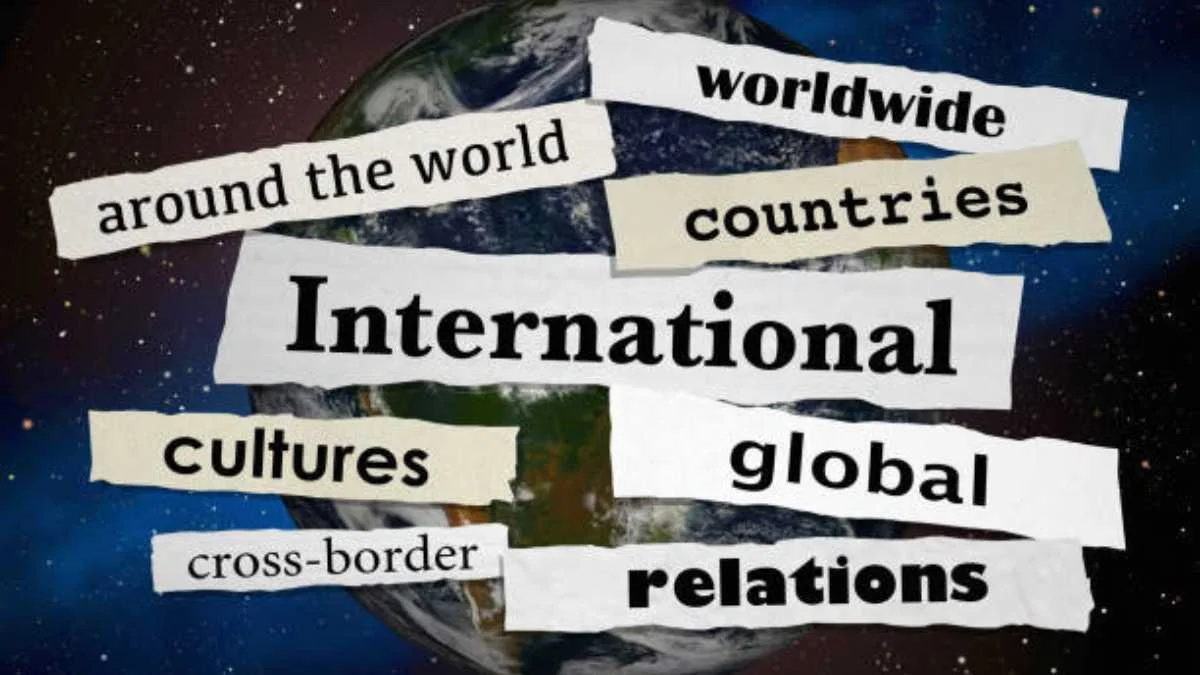EDUCATION
Beyond Borders: A Guide to Thriving in the Diverse World of International Administration

Understanding International Administration
As global issues become ever more complex and interconnected, the demand for skilled professionals in international administration is steadily increasing. These careers focus on managing projects and policies that impact nations and communities worldwide. Whether facilitating cross-border partnerships in the private sector or shaping humanitarian responses, administrators play a pivotal role in global governance. Individuals interested in advancing their careers often pursue advanced study, such as the Online Masters in International Affairs, to gain targeted expertise and broaden their professional horizons.
Careers in this arena extend across public, private, and non-profit sectors. Professionals might manage international aid initiatives, coordinate multinational business operations, or help design international public policies. Success in these occupations does not just rely on technical skills, but equally on one’s ability to operate across cultural boundaries.
This border-transcending work environment requires individuals to think globally and act locally, balancing diverse perspectives and interests. The ability to adapt to different regulatory environments and cultural expectations is critical, especially in roles related to diplomatic engagement, policy analysis, or large-scale program management. The field is continuously evolving as international organizations adapt to world events, technological advancements, and shifting political and economic landscapes. This evolution opens up new roles in crisis management, data analysis for international development, and cross-border health and environmental policy implementation. International administrators must cultivate a robust set of skills to succeed. Effective cross-cultural communication remains central, as daily interactions frequently span languages, customs, and working styles. Equally important is analytical thinking, which enables professionals to break down complex global challenges and identify strategic solutions.
- Cultural Sensitivity: Mastery in working with stakeholders from a diversity of backgrounds, respecting values, and tailoring actions and recommendations for intercultural resonance.
- Strategic and Analytical Thinking: Ability to synthesize information from geopolitics, economics, and sociology to develop holistic, actionable plans.
- Advanced Communication: Strong writing, public speaking, and negotiation skills to represent interests and foster understanding in international forums.
- Problem-Solving and Flexibility: Adaptability to rapidly changing environments and unexpected challenges, supported by creative and critical thinking.
Educational Pathways
Most professionals begin their journey with undergraduate degrees in fields such as international relations, political science, or public administration. However, specialized graduate programs provide deeper insight into global systems, governance structures, and cultural frameworks. Advanced training, including studies on international law, economics, and security studies, further prepares individuals for leadership positions.
Engaging in interdisciplinary learning, combining politics, business, and regional studies, creates a well-rounded outlook. Many top roles today require or prefer a relevant master’s degree, reflecting a growing demand for specialized knowledge and analytical skill sets. For those considering a leadership trajectory or roles in policy analysis or foreign service, an advanced degree is often essential.
Gaining Practical Experience
Hands-on experience is indispensable for success in international administration. Internships with organizations such as the United Nations, World Bank, multinational corporations, or international non-profits offer valuable exposure to real-world challenges and organizational cultures. Volunteering for community projects, both locally and abroad, can also demonstrate commitment and build essential soft skills.
Practical roles often provide direct opportunities to develop project management abilities and build professional networks that are crucial for future job searches. Sponsorship of student research or fieldwork by large foundations or engagement in study-abroad and language immersion programs can give candidates a competitive edge.
Networking Strategies
The importance of building a global professional network cannot be overstated. Attending major international events, sector-specific conferences like those organized by the Council on Foreign Relations, or participating in online communities, allows professionals to connect with potential employers and mentors. Joining alumni organizations and professional societies related to international affairs is also beneficial.
Online platforms, including LinkedIn and dedicated international relations forums, facilitate continuous engagement and information sharing, while informational interviews and mentorship programs provide first-hand industry insights.
Exploring Career Opportunities
Job searches in international administration benefit from targeted resources. Comprehensive job boards offer access to listings across NGOs, think tanks, international development agencies, diplomatic services, and more. Monitoring governmental and multilateral organizations’ career pages ensures candidates are aware of competitive positions as soon as they are available.
Opportunities exist for recent graduates as well as seasoned professionals; positions may range from field officer and analyst to program director and policy advisor. Remote work, consulting, and project-based roles are becoming more common as organizations seek flexible, globally minded talent.
Staying Informed
Remaining up to date with international developments is critical for long-term success. Subscribing to resources like foreign policy provides timely analysis and commentary on world events, policy innovations, and security issues. Regular reading of research from global think tanks and multilateral agencies further strengthens sector knowledge. In a field shaped by constant change, ongoing education, through online courses, language study, or global news platforms, helps professionals maintain a competitive advantage and prepare for emerging opportunities. Launching a career in international administration is a multi-stage process that rewards dedication to education, practical experience, and global awareness. Those who leverage advanced studies, like the Master of Arts in International Administration, coupled with international exposure, analytical prowess, and active networking, are exceptionally well-positioned to thrive and lead in this dynamic, essential sector.
-

 BIOGRAPHY9 months ago
BIOGRAPHY9 months agoBehind the Scenes with Sandra Orlow: An Exclusive Interview
-

 HOME1 year ago
HOME1 year agoDiscovering Insights: A Deep Dive into the //vital-mag.net blog
-

 HOME1 year ago
HOME1 year agoSifangds in Action: Real-Life Applications and Success Stories
-

 BIOGRAPHY1 year ago
BIOGRAPHY1 year agoThe Woman Behind the Comedian: Meet Andrew Santino Wife




























